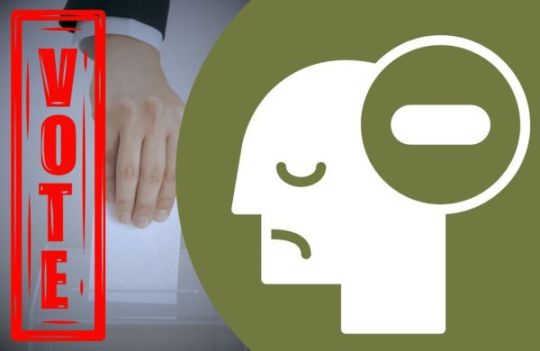Text
Why not consider having mandatory psychological assessments, for our presidents and other leaders?

I decided to look up what criteria are typically considered when nominating individuals for such an important role in our society as well as the processes we use to make decisions. So how exactly do we assess a candidate? This question dawned on me later after years of feeling let down by my choices despite my initial optimism. In every election I found myself repeating the errors time and time again.
It’s become apparent to me that I simply lack all the information to make an informed decision. Realistically how could I? Solely based on a string of responses, appearances or televised debates? There have been instances in my life where close friends or family members have surprised me with their reactions and behaviours. So then how can I accurately judge someone I have no connection with?
It’s evident that each of us has our limitations when it comes to assessing individuals – influenced by our beliefs, values and more. We are all unique with varying perspectives, judgments and scales of values. The same holds true for candidates.
In conclusion, what defines a leader. And how can we discern this prior, to casting our vote?
To begin with, there is not only one set of criteria for evaluating the performance of a president. Various theories exist on this subject and as always compiling a 10 list can yield varied results. Fundamentally, each individual is unique from the outset. It’s impractical to expect one leader to cater to every preference equally. Leaders cannot meet all our desires. But can a leader exhibit both efficiency and ethical conduct across all domains? Certainly possible. Then, who determines the core values that should be prioritized?
Here’s what some opinions say – as different perspectives offer viewpoints. Some argue that it’s essential to consider the beliefs, attitudes and actions that differentiate leaders from others; while others posit that it’s not merely personal traits or characteristics that hold significance but rather the transformative vision that others can get behind.
Certain individuals advocate for adopting a lens when evaluating a leader’s character and virtues like compassion, modesty, honesty, self-restraint, fairness, responsibility, bravery, transcendence, determination and cooperation. These leaders tend to be most impactful when they embody a shared set of principles which facilitate discussions, among others on how to implement them.
Some individuals lean towards beliefs centred on following rules and societal norms like avoiding conflicts of interest, obeying laws and providing benefits – these factors influence how politicians’ behaviour is ethically evaluated.
Even if there were a list of 10 accepted values it wouldn’t completely address the issue. Why? Because people tend to show bias towards those they consider part of their group and are more swayed by those they feel a connection with. Humans strongly favour those they see as “one of us”.
Consequently, individuals often overlook these 10 values when assessing someone in (or aspiring to) a leadership position. Subconsciously, we tend to assess leaders based on our ideas of leadership. People typically use criteria to evaluate politicians relying on impressions and the opinions of their social circle. Essentially, we have crafted an idealized image of how leaders should be perceived. Some may seek an authoritarian figure similar, to what they experienced in their family background; however such leaders are often punitive, lacking empathy and inclined towards intimidation.
Many people are influenced by what they see in movies and TV shows, where leaders are portrayed as life figures who can save the world. However, this often leads to false expectations and unfair blame placed on leaders when they can’t meet those expectations.
It’s knowledge that no leader is flawless. Politicians can’t please everyone because they represent groups with conflicting interests. Collaboration and compromise are essential for progress.
Imperfection doesn’t equate to incompetence. Soft skills play also could play a role in a politician’s effectiveness more than their beliefs.
Given our lives, it’s challenging to form well-informed opinions about leaders. Wouldn’t it be helpful to have assessments that provide insights without relying on guesswork? I don’t want us to become careless in our judgments relying on evaluations solely. However, it’s crucial to find a way to make important decisions especially when our future is on the line. Tools for assessment, and having an extra layer of security in our choices would be beneficial.
I prefer knowing upfront if someone has Machiavellian or narcissistic traits so I won’t be caught off guard later. It’s important for me to understand who is the person behind the TV screen from the beginning.
When you need to get your driver’s license, you need a psychological test. In recruitment, more and more companies are requesting psychological tests for potential employees based on the principle that having the necessary skills is not enough if you are not compatible with the organizational culture and are not a good team player. If such requirements are desired by companies with just a few employees, why shouldn’t they be mandatory for a position that involves leading millions of people?
I will leave at the end a very interesting article that I found and which, I believe, is just as relevant today:
“American presidents are not required to pass mental health exams or psychological and psychiatric evaluations before taking office in the United States. But some psychologists and members of Congress have called for such mental health exams for candidates following the 2016 election of Republican Donald Trump. Even members of Trump’s own administration expressed concern about his “erratic behavior” in office. The president described himself as a “very stable genius.””.
Who Decides If Presidents Are Unfit to Serve?, By Tom Murse, January 12, 2020
https://www.thoughtco.com/presidents-and-psych-evals-4076979
1 note
·
View note